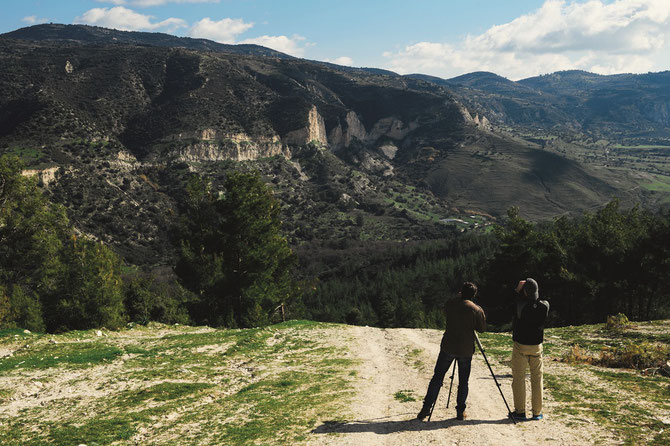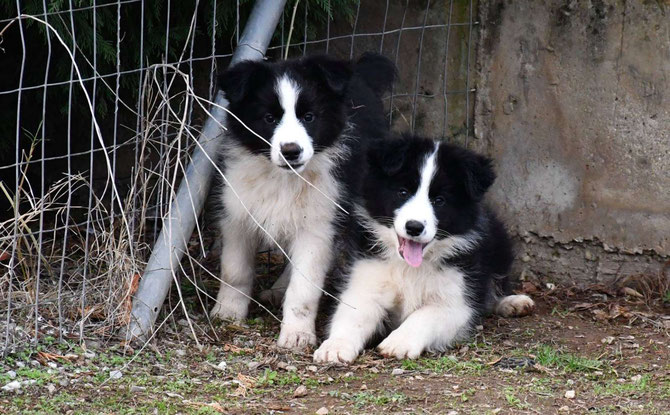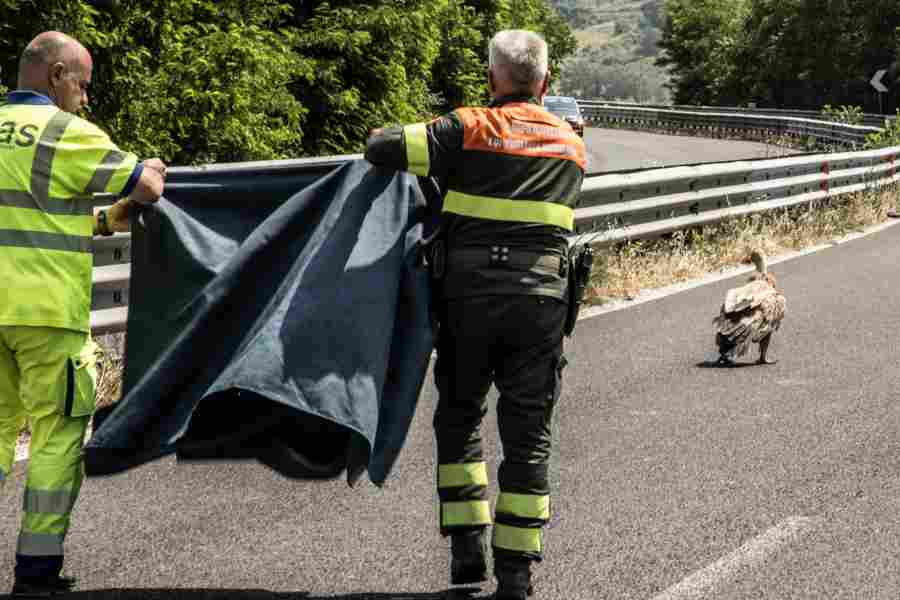
Despite 2020 being an extra challenging year due to the COVID-19 pandemic, the LIFE with Vultures team working to save the vulnerable Griffon Vulture population in Cyprus achieved a lot for the conservation of the species.
RESEARCH
Population Viability Analysis (PVA)
The Vulture Conservation Foundation (VCF) conducted a Population Viability Analysis (PVA) to estimate the extinction risk for Griffon Vultures in Cyprus and identify priority actions for their conservation. It concluded that the population must be strengthened by releasing at least 24 birds over two years and reducing poisoning incidents to less than one every ten years in order to increase the likelihood of the population recovering over 25 years and ensure its long-term survival.
Ecosystem service provision study
The VCF also evaluated the role of Griffon Vultures in the provision of ecosystem services in Cyprus. Using standardized methods (CICES framework), we have developed models that show how vultures can interact with the environment and human activities in Cyprus, and how they can affect ecosystem services and human health. The study concludes that if the vulture population were to be consistent with the Favourable Reference Value (FRV = 200 individuals), natural carcass consumption could potentially reduce greenhouse gas emissions in Cyprus from 11080-16508 tons of CO2 to 6361 annually, related to the collection and transport of carcasses to processing plants by vehicles. The associated reduction of the total transport costs would be from €24,844-37,013 to €14,262 per year. Also, revenues from vulture-related leisure/tourism activities could contribute €648,818 per year to the country. These and other findings of the study highlight the importance of the species for the provision of ecosystem services in Cyprus.
Evaluation of poison baits use in the countryside from 1996 to 2020
BirdLife Cyprus collected and analyzed all available data on poisoning incidents that took place in Cyprus from 1996 to 2020, demonstrating the adverse impact of poison baits use on the Griffon Vulture population in Cyprus. In a period of 25 years, 27 cases of illegal poisoning have been recorded, which caused the loss of 62 Vultures. In the last five years alone (2015-2020), 39 confirmed cases of poisoned baits use in the countryside have been recorded, with 63 animals killed. Of these, 8 were Vultures, a loss that reaches 1/3 of the Vulture population in Cyprus. The analysis also revealed that the substances used in the vast majority of cases are pesticides from carbamates (e.g. methomyl under the brand name Lannate), which are banned in the European Union. Undoubtedly, this is an underestimation of the impact of this illegal practice as it is not possible to detect all cases of poisoning or their victims.
Evaluation of the legal and administrative framework for the management of poison bait incidents
The study focused on analyzing the provisions of current legislation and administrative practice, which regulate the use of poisoned baits in Cyprus, to identify any legal gaps or administrative weaknesses in handling such incidents. The study did not identify gaps in the current legislation. On the contrary, it concludes that under the current legislation, adequate protection is provided to the Griffon Vulture. However, the study identified issues in the management of the illegal use of poisoned baits, but the LIFE with Vultures project will address the majority. These issues include the need to establish and operate a specialized Laboratory of Forensic Chemistry and Wildlife Toxicology, the illicit trafficking of banned pesticides and the need to involve law enforcement authorities to trace and investigate cases of illegal wildlife poisoning. The results of this study will help guide our efforts to combat wildlife crime.
Study on the level of awareness of local communities and stakeholders on the issue of the use of poisoned baits
The study, conducted by Terra Cypria through interviews with residents of local communities and specific population groups (breeders, farmers, hunters) that geographically fall within areas used by vultures, gathered information on respondents’ perceptions of the use of poisoned baits, the level of awareness on Griffon Vultures, the Natura 2000 network and other relevant parameters. The results of the interviews show that the most frequent users of poisoned baits belong to the social groups of hunters and breeders, while their motives seem to lie mainly in disputes between hunters and the protection of livestock units from foxes and crows. The results of this study also revealed the possible use of illegal substances and the existence of illicit trafficking in banned chemicals/pesticides. Interestingly, most of the respondents who stated that they have placed poisoned baits in the past knew that it is illegal. In addition, this study demonstrates the need to intensify law enforcement efforts to combat this crime against wildlife, as well as the need for information and awareness actions on the consequences of this practice. The LIFE with Vultures project, based on this study’s insights and as soon as the pandemic conditions allow, will implement an information campaign targeted to local communities and other important audiences.
MONITORING
Monitoring the breeding activity of Griffon Vultures
Although the restrictive measures to tackle the COVID-19 pandemic came into force during the monitoring of the Griffon Vulture breeding season, the LIFE with Vultures team managed to achieve their monitoring aims that began in January. The purpose of monitoring activities is to identify breeding pairs in the population, but also to study their breeding success. The results of this follow-up were the identification of five breeding pairs. Of these, one did not complete the nest construction, one abandoned it before the egg hatched, one abandoned it when the chick was a few weeks old, and the good news is that two of the five pairs managed to raise a healthy chick that successfully fledged. One and a half months later, one of the two chicks was found exhausted and weak a few kilometres away from the nest (story of Kostis – more details below). What is worrying is that the Episkopi Cliffs colony, which has been steadily active every year for the last decades, did not produce chicks this breeding season. It is worth noting that the two successful pairs consist of Cretan Griffon Vultures that were transferred to Cyprus as part of previous recovery efforts for the species.
Nationwide census

Since 2011, BirdLife Cyprus and colleagues have been carrying out Griffon Vulture censuses in Cyprus twice a year, during winter and spring. Due to restrictions, the spring census for 2020 focused on colonies, with a limited number of volunteers participating. The winter census for 2020-2021 took place shortly before the end of 2020 with 23 observers from the project team, volunteers and other stakeholders (Forest Department, the Environment Service Agency of the UK Bases) stationed at 11 locations within the geographical scope of the Griffon Vulture. From the field observations, the simultaneous monitoring of the GPS-tagged birds, and from camera traps placed in the feeding stations, we recorded 20-21 Vultures throughout Cyprus. The Griffon Vulture population in Cyprus remains extremely small and this is another reminder of how vulnerable the population is and how one mass poisoning case could wipe out the species from the island.
CONSERVATION ACTIONS
Rescue of the young Griffon Vulture Kostis that hatched in 2020
One of the two young Griffon Vultures that hatched this year was found a few kilometres away from its nest, stranded and exhausted a month and a half after its successful first flight. A Health Services official fortunately located the little one and immediately informed the Game and Fauna Service. After the emergency treatment and weeks of care, the young vulture named Kostis, as a sign of appreciation to the veterinarian Konstantinos Antoniou who rehabilitated the vulture, was released into the wild. Thanks to the GPS tag that we installed before the release, we can now monitor its movements and we have the opportunity to intervene in time if necessary, as was done with Nefeli in November 2019. In addition to the GPS tag equipped on an adult Griffon Vulture that was imported from Crete, the total number of birds carrying a tag at the moment is four, an important part of the vulture population on the island.
Identification of dangerous overhead power lines for collisions
The work of the project team to identify overhead power lines that carry the highest risk of collisions is nearing completion. To identify these lines, the team combined data from the movements of birds with GPS tags, identified the areas most often used by vultures, the locations of supplementary feeding stations, the locations of active breeding areas and the network of overhead power transmission lines provided by the Electricity Authority of Cyprus. The purpose of this action is to subsequently equip these lines with anti-collision markers to reduce the risk of this threat. For the final selection of the most dangerous overhead power lines, additional analysis of data collected from observations in the field as well as consultation with the Electricity Authority of Cyprus will take place.
Training of the Anti-poisoning Dog Unit

Sophie and Dixie, two black and white fluffy puppies that will play a key component in the fight against wildlife poisoning, were born on October 3 2020. They have already started training to detect poisoned baits to eventually become heroes of the Cypriot countryside. The training of the two Border Collies requires time and technique, so a professional with such experience from Greece will carry out this training. Upon completion of the training, the Dog Unit will be able to detect poisoned baits and victims of wildlife poisoning, which has been the case for years in other European countries. The Dog Unit will provide insight on the true extent of the problem, help significantly in locating and removing poison from the countryside and thus often act as a discouraging factor for offenders. In Cyprus, the Anti-poisoning Dog Unit will operate under the Game and Fauna Service, while patrols will focus on rural areas, mainly within the Griffon Vulture distribution range. In addition, the project starts to make adequate preparation for the process of collecting and preserving evidence from poisoning incidents, so that all necessary and legally correct procedures have been exercised with the aim to prosecute anyone who commits such an offence. The operation of the Dog Unit is expected to start at the end of 2021/ beginning of 2022.
Development of a veterinary protocol for rescuing poisoned vultures
To maximize the chances of survival of poisoning victims found while still alive, the project developed a relevant veterinary protocol. The protocol was prepared by the veterinarian Konstantinos Antoniou and is addressed to staff of the Game and Fauna Service, veterinarians and volunteers involved in the care of wild birds. It includes procedures from the basic handling of a Griffon Vulture to dosages and clinical case management with the ultimate goal of proper care and rescue so that the bird can return safely to its natural environment. The protocol will soon be available on the project website.
AWARENESS
As part of the information and awareness actions of the project, BirdLife Cyprus developed an informative website, which is regularly updated with news from the actions of the project. An issue of the BirdLife Cyprus magazine for members was also exclusively dedicated to the Griffon Vulture and the project. At the same time, to date, the project has published three press releases, given seven interviews on radio and television and have had more than 50 reports in print and online media, while there are also regular news posts and videos on the social media pages of the project partners.
In addition, with funding from the MAVA Foundation, BirdLife Cyprus created relevant educational material for children such as a fairy tale starring the Griffon Vulture of Cyprus (presented through a musical-narrative performance) board game, activity book, trampoline and photo panel, as well as a real-size Griffon Vulture costume. At the same time, they have created a brochure aimed at shepherds and breeders, providing alternatives to poison baits that don’t harm wildlife to protect their livestock.
LIFE with Vultures

LIFE with Vultures is a targeted conservation project for the protection of the Griffon Vulture in Cyprus. In this four-year endeavor (2019-2023), BirdLife Cyprus, the Game and Fauna Service, Terra Cypria – The Cyprus Conservation Foundation and the Vulture Conservation Foundation have joined forces to tackle the main threats facing the Griffon Vulture and prevent Cyprus’ most threatened bird of prey from going extinct. The project has a 1,375,861 Euro budget and is co-funded (60%) by the EU’s LIFE programme.






